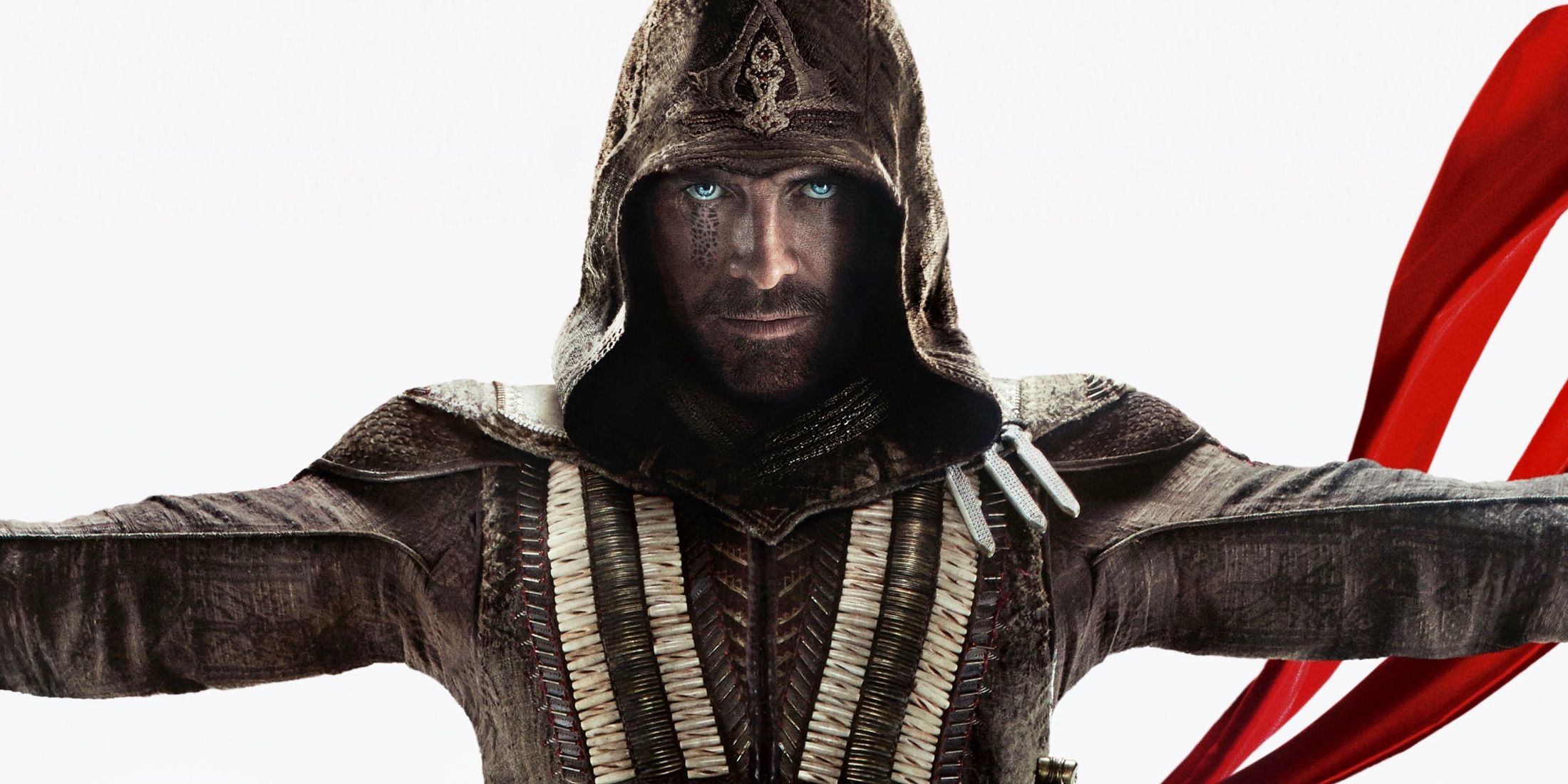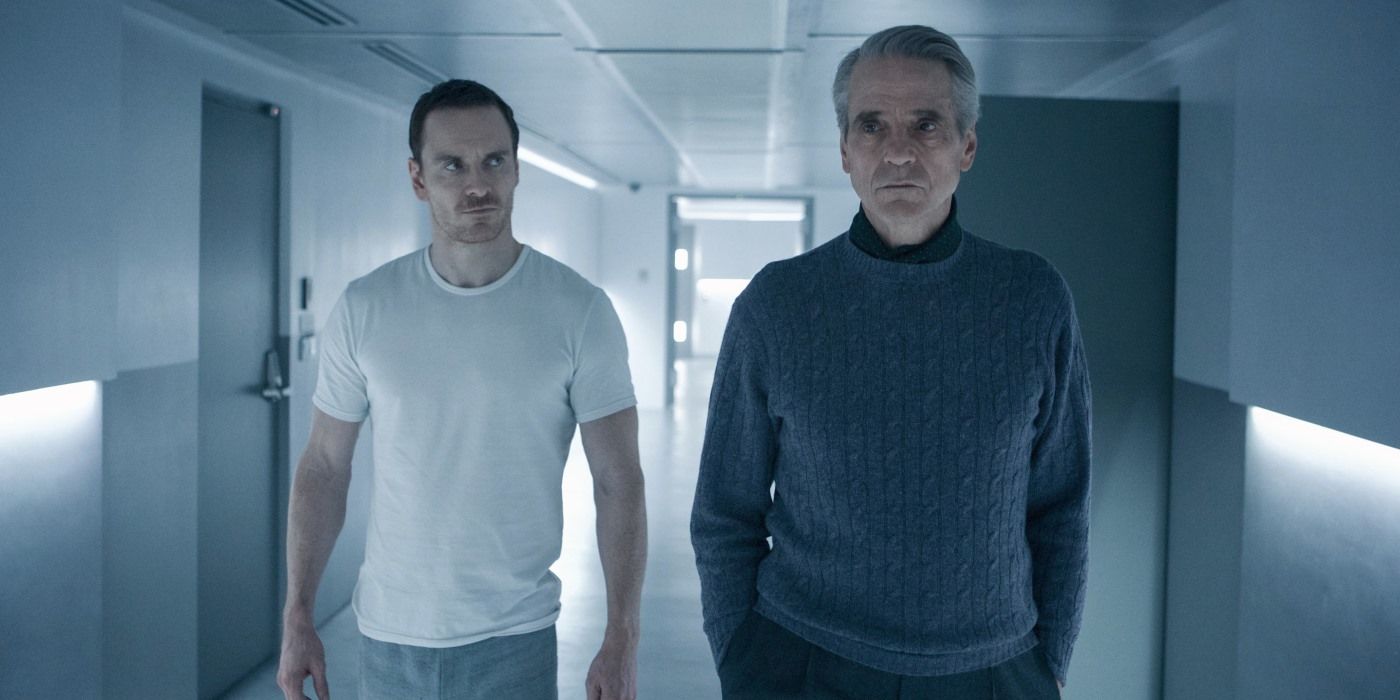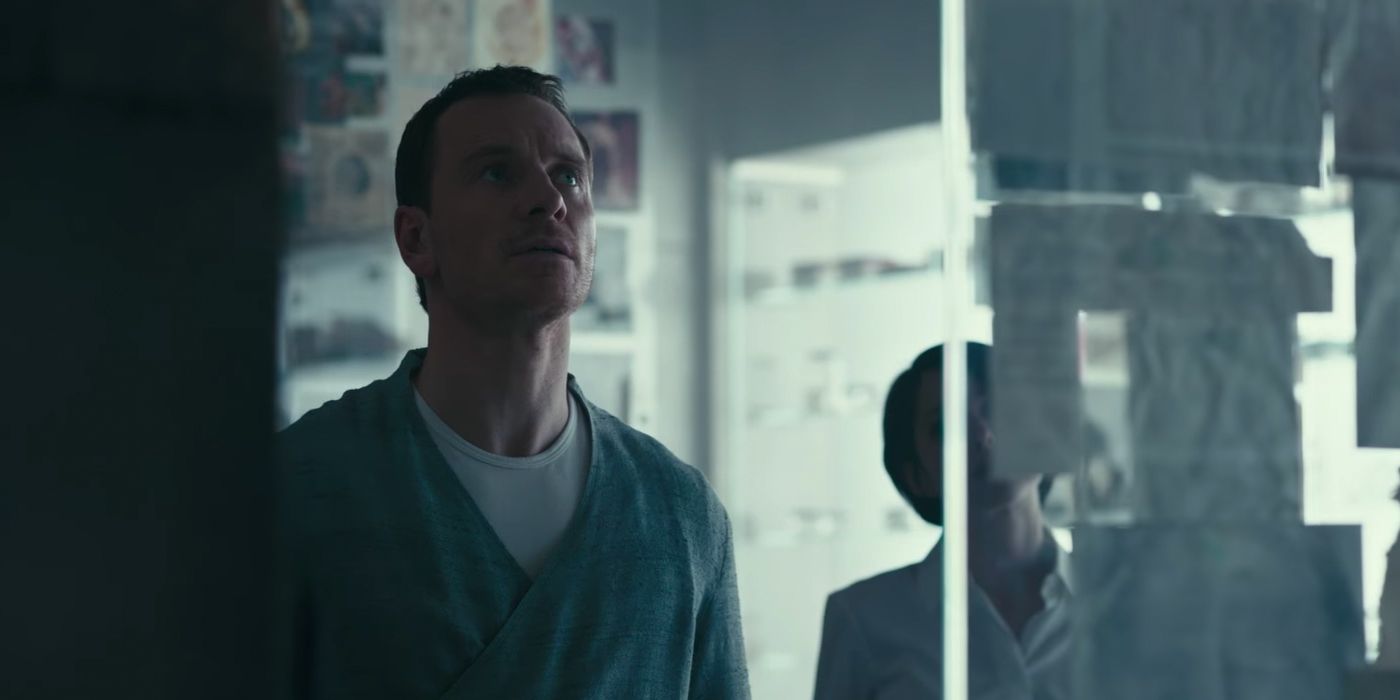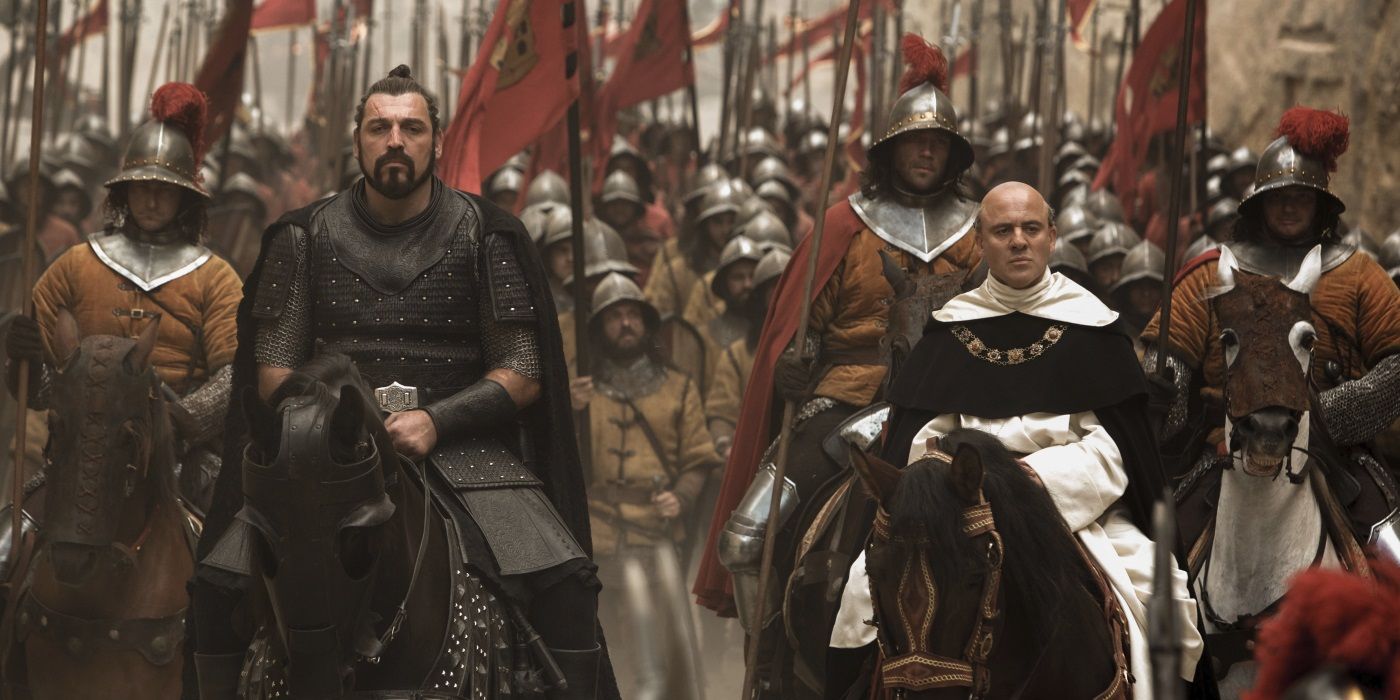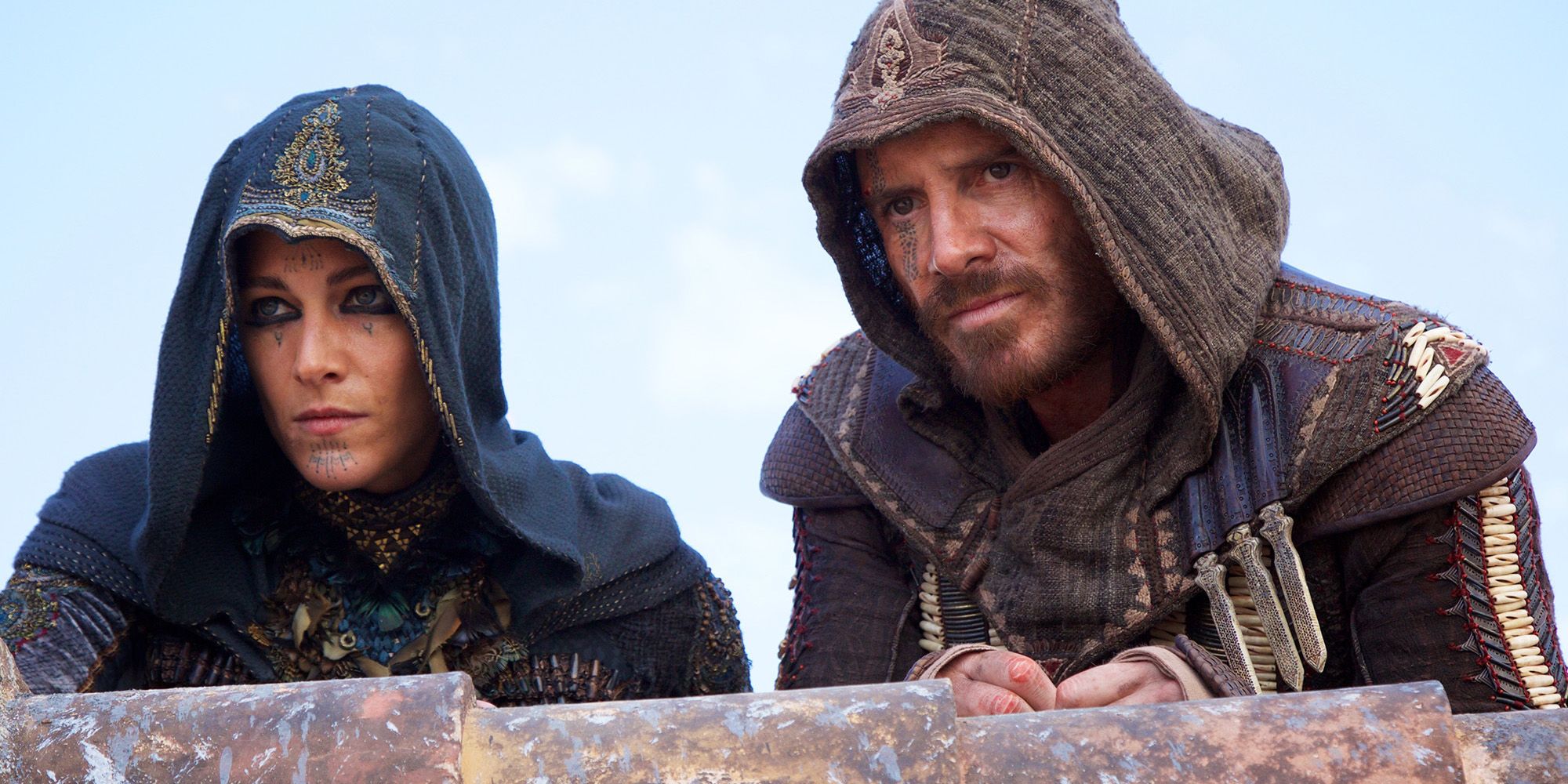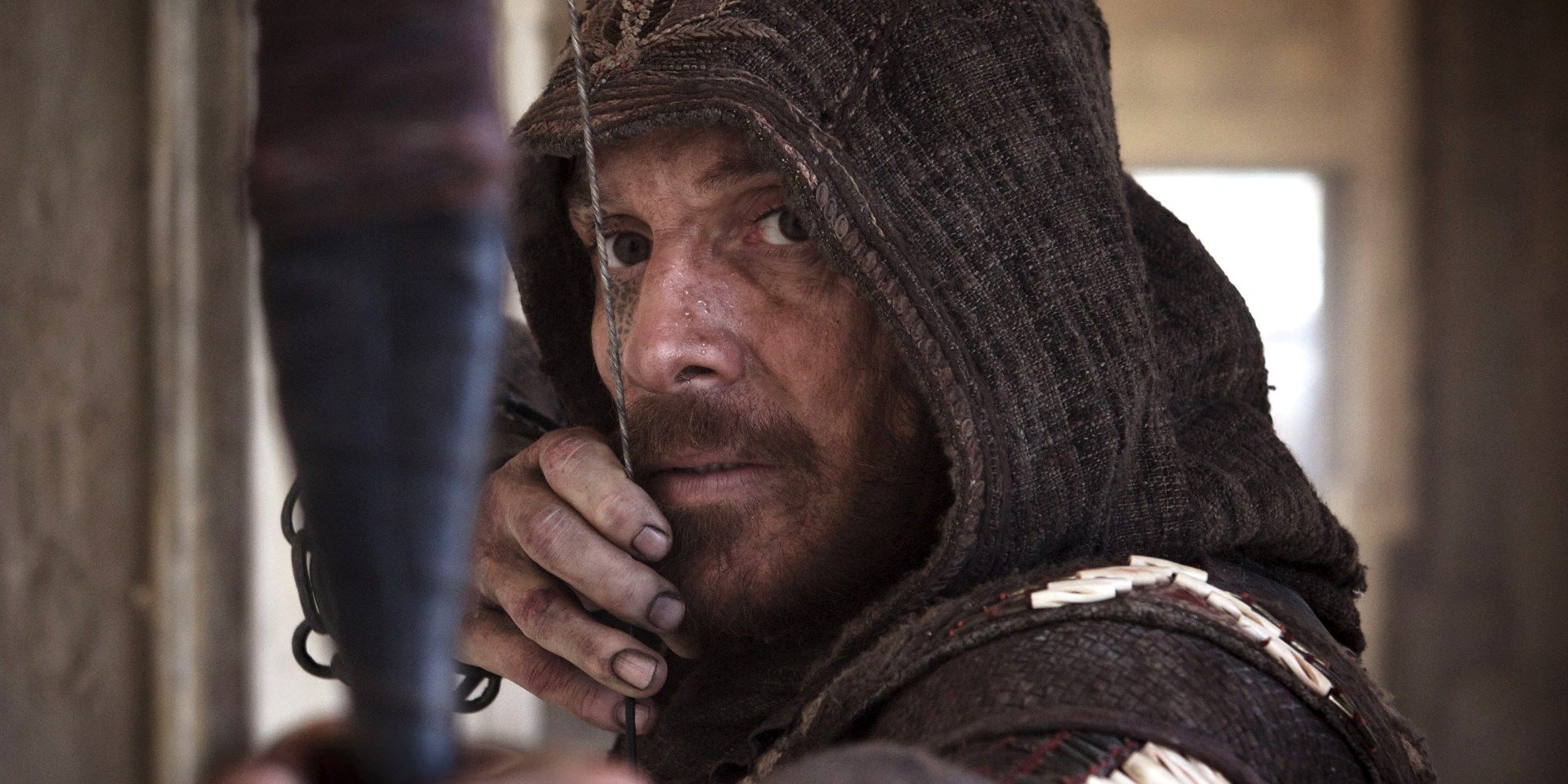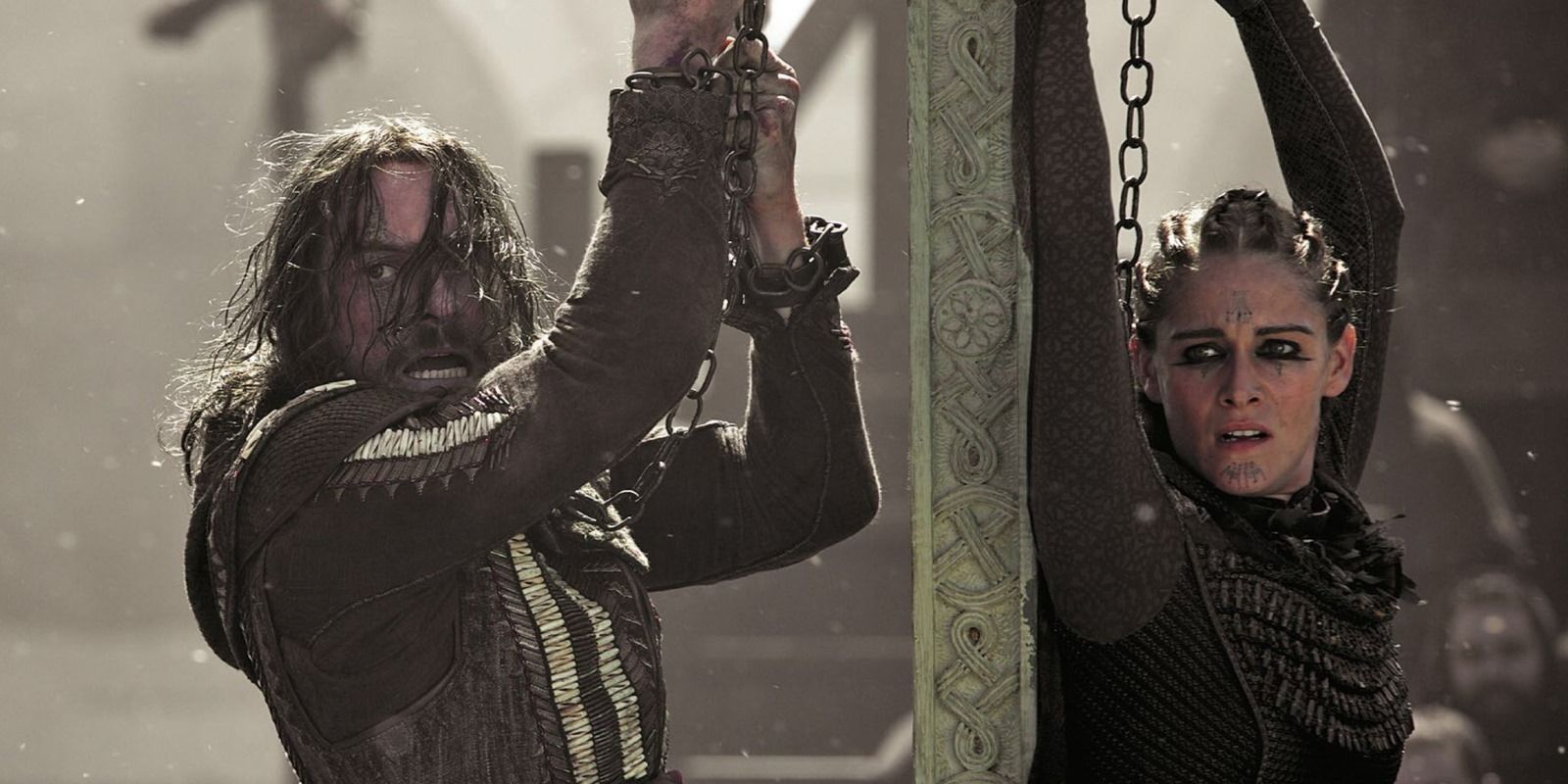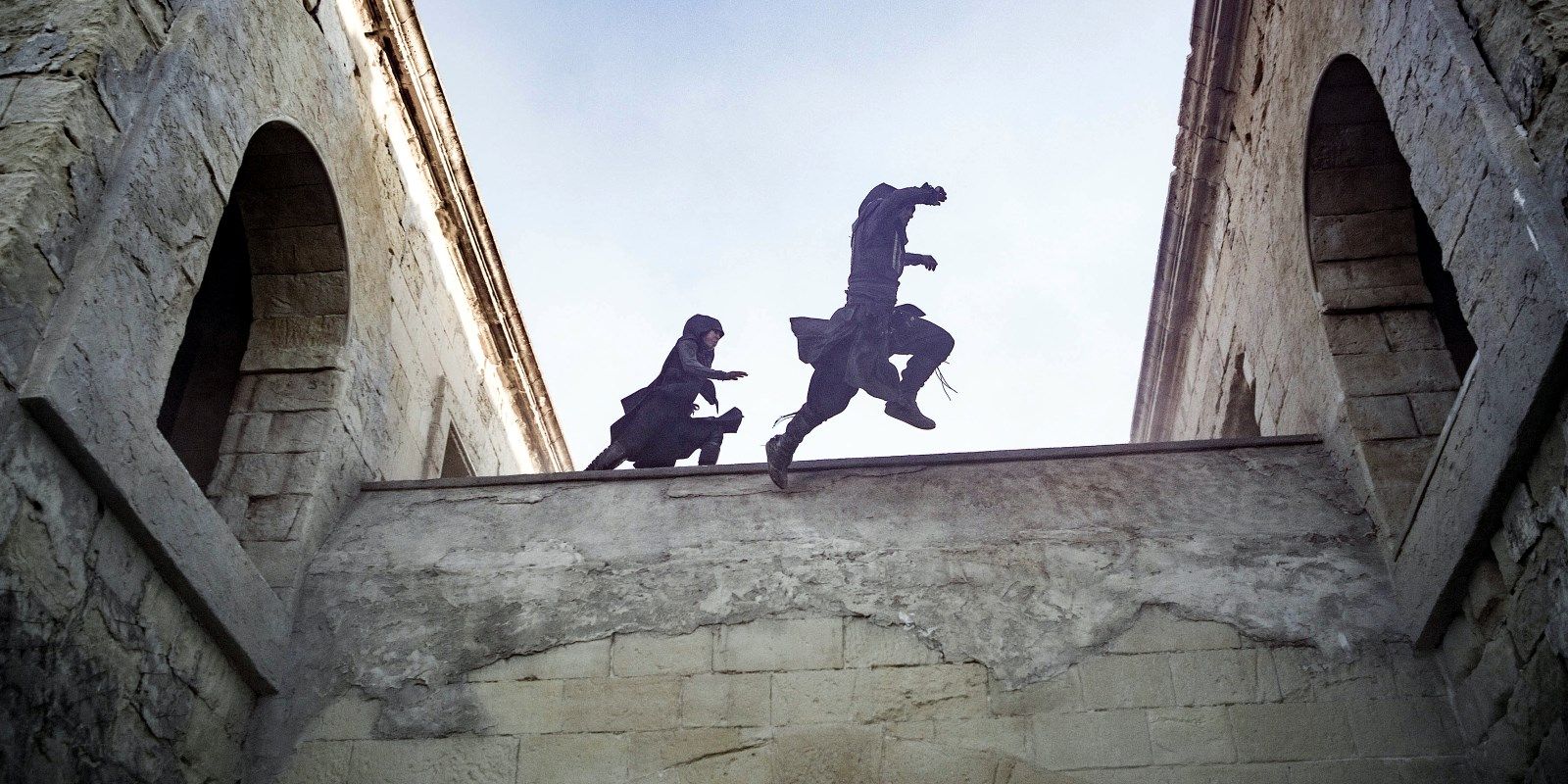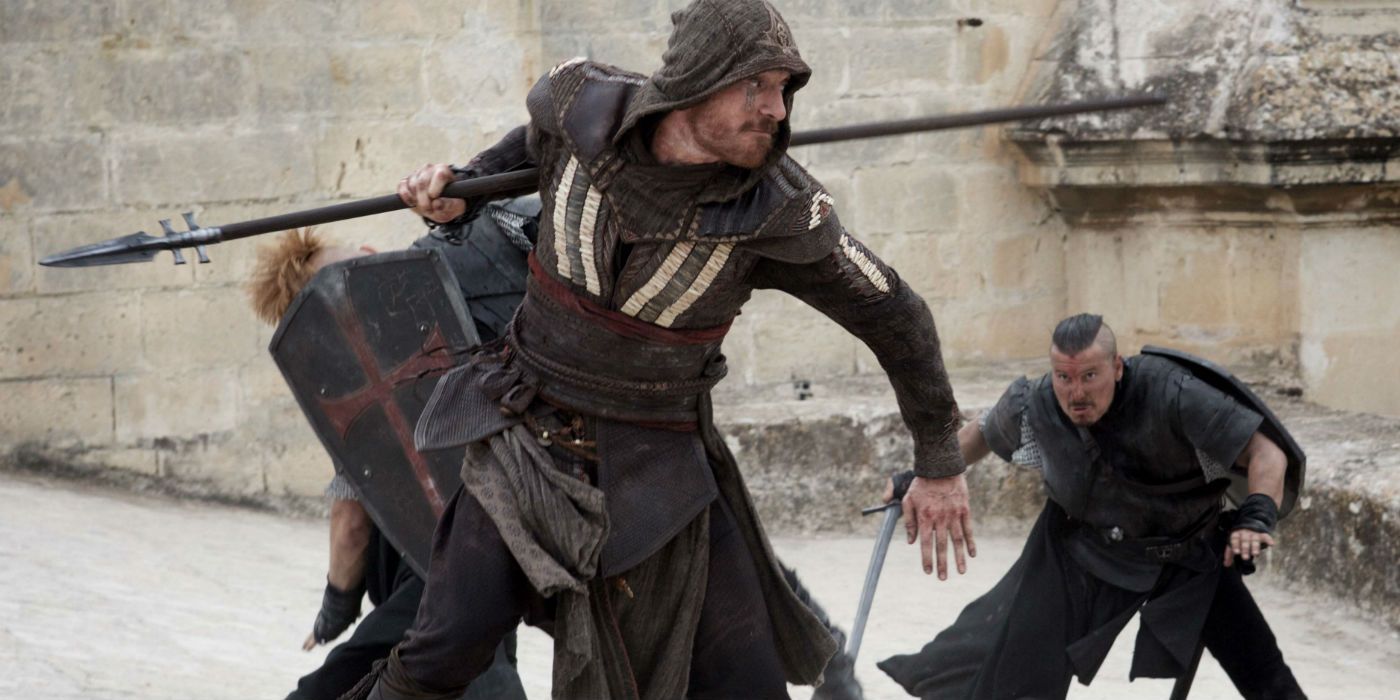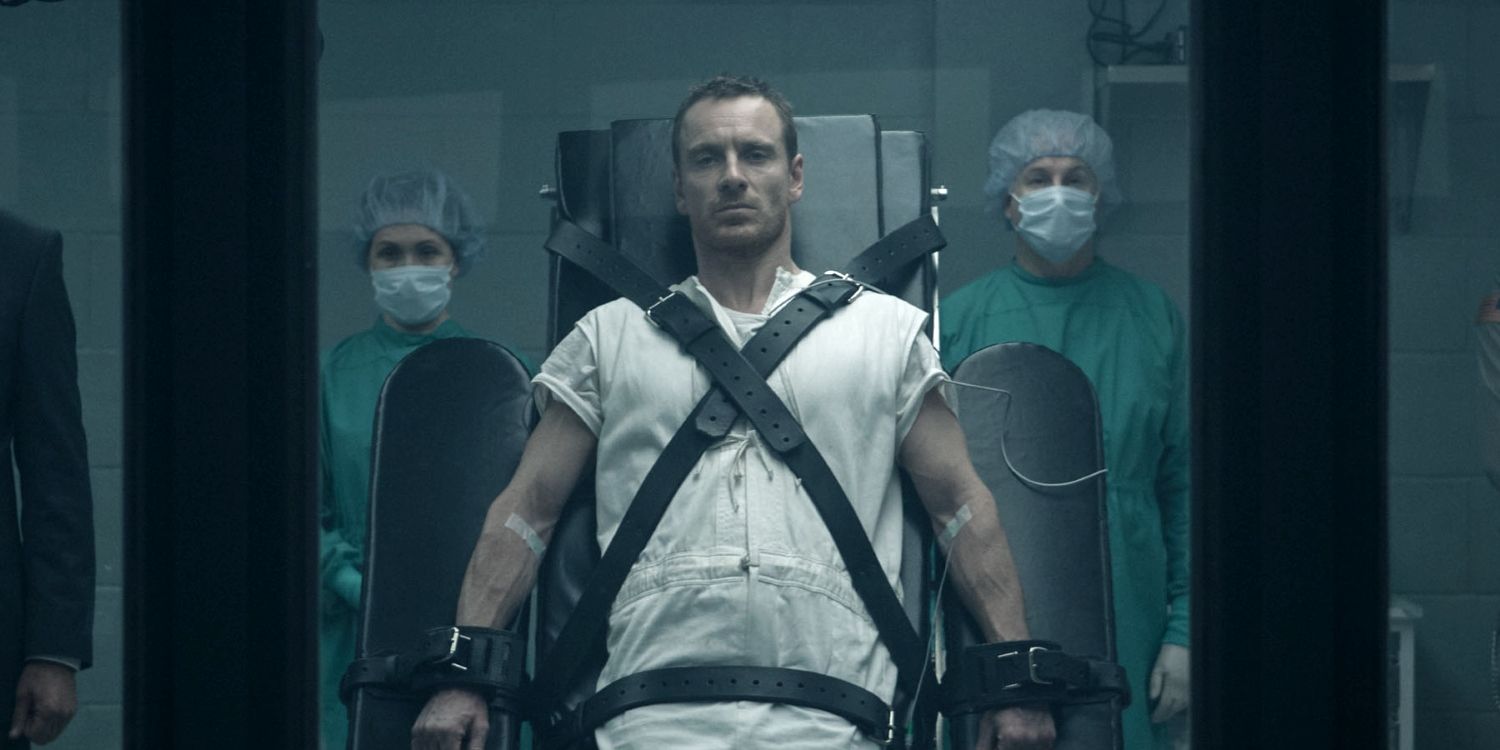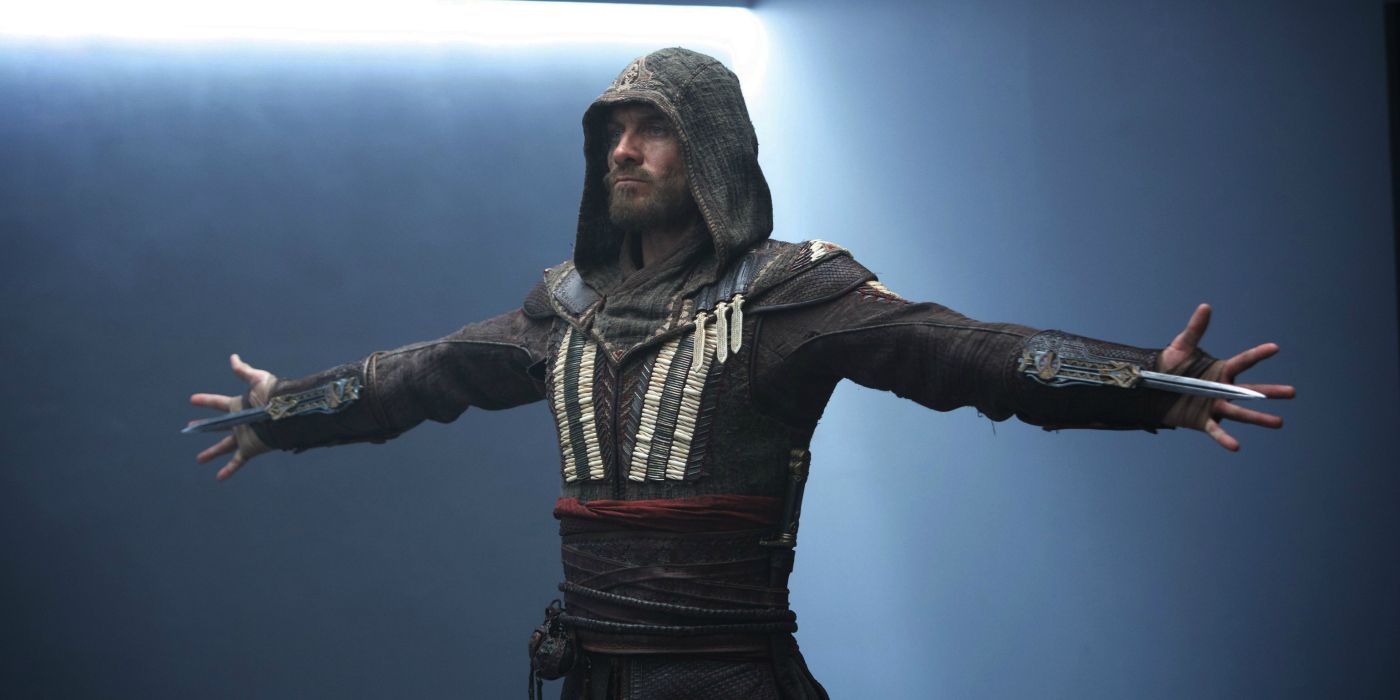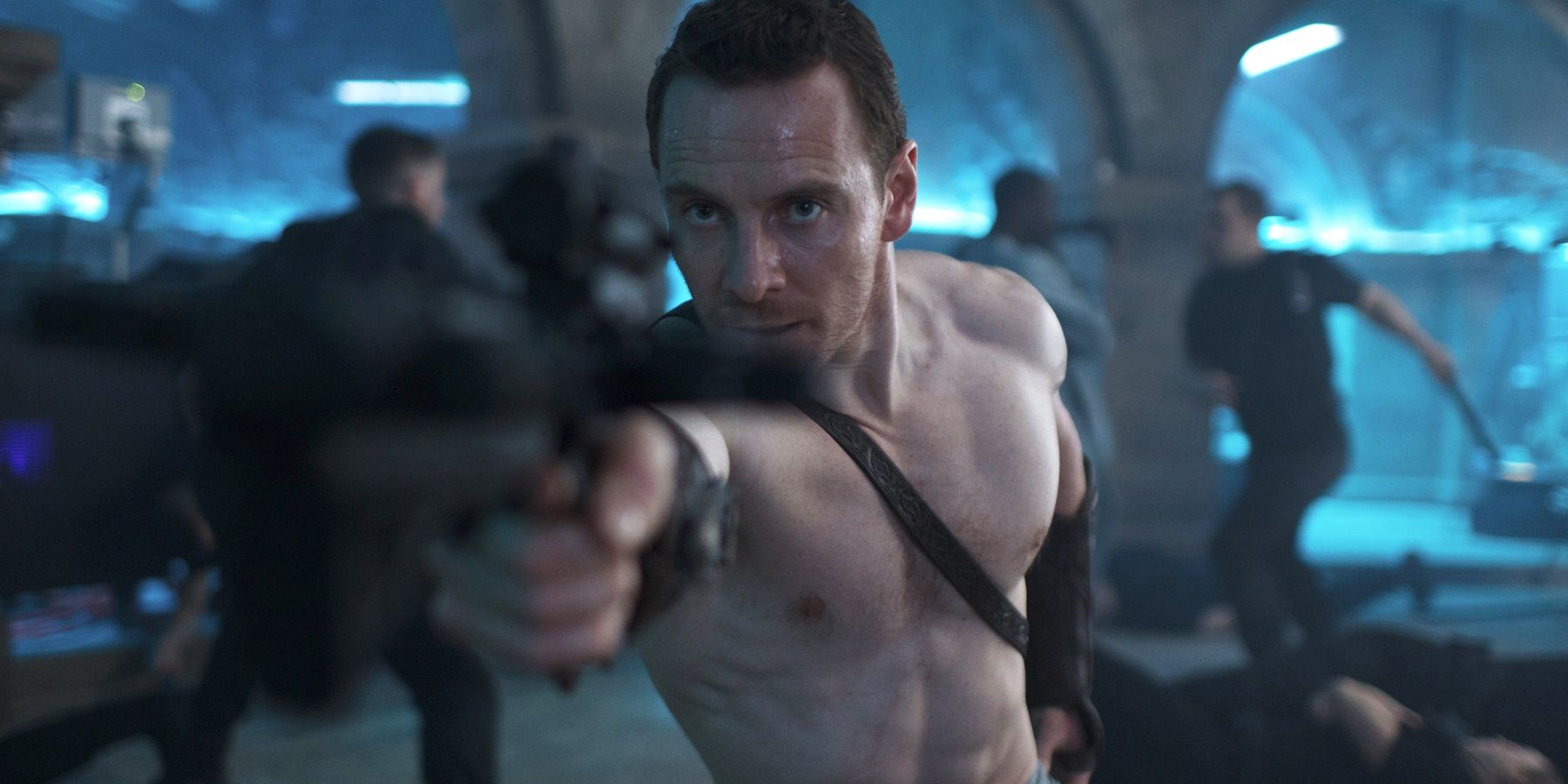NOTE: This article contains SPOILERS for Assassin's Creed
-
In the modern era of digital entertainment and cross-platform media, it's still Hollywood blockbusters that reign supreme, with billion-dollar box office takes now downright expected by the most popular brands. But for the past decade, movie studios have struggled to find a way to bring the profits of the video game market into the same arena - specifically, the franchises and their respective fan bases who also help to chase the billion-dollar mark (in some cases, year after year). A struggle that has, to this point, been viewed as a failing one.
Plenty of reasons and factors have been debated and identified for that habit of failure, and a Hollywood studio's fundamental misunderstanding of what makes a video game property a success has been chief among them. Which is why Ubisoft's decision to form a production company and develop an Assassin's Creed movie firsthand seemed like a step in the right direction. Who better to preserve the spirit of the brand than the ones who built it to begin with? Yet, the result was, once again, less than perfect... leading critics to stamp it as more of the same, and the "video game movie curse" claimed one more property.
But as the film industry - or, in truth, any creative one - has shown time and again, success isn't a singular event. Even films or TV shows credited with "reinventing" the genre or medium are typically shaped, inspired, and informed by other works that, for one reason or another, failed to gain the same level of success or impact. Which is why Assassin's Creed is worth more inspection than has been largely given. Not only for its successful adaptation of the franchise's core mythology, but the number of hard-learned lessons that clearly informed the filmmakers' ambitions.
It may not be the universally-praised, mega-hit video game adaptation to similarly "reinvent" the genre - and we're increasingly skeptical such a film will, or can meet that bar - but Assassin's Creed succeeds in ways that many predecessors failed. And now that one video game adaptation has taken such steps, regardless of how profitable it will ultimately be, its successors would be wise to follow a similar path.
Keep The Story Simple, Not Fan Service
In the process of adapting a rich, expansive, fictional universe from the world of novels, comic books, or video games to a single film, there's one flaw that has already become a trope for even casual moviegoers. As they sit in theaters, completely drowned in unexplained references to far, irrelevant corners of the universe, or see completely new concepts treated with a level of reverence and 'don't you all see how important this is' grandeur, an audience member is now likely to ask: "this is adapted from a book or video game, isn't it?"
In other words, the idea of 'show, don't tell' is thrown out the window - and for understandable reasons. Why pay for the rights to adapt a broad, fully-realized world millions already known front-to-back if you're not taking advantage of it? But it's a narrative minefield, all the same: existing fans simply get more of the same (a shallow kind of satisfaction), and newcomers are turned off, since the film doesn't prioritize intriguing or hooking the uninitiated, or, at worst, alienates them for not knowing this stuff already.
Many have criticized Assassin's Creed for being light on story or characterizations, or relying on style over substance or substantial arcs - including our own official review of the film. It's all fair feedback, but keeping things streamlined also seems a conscious choice on the part of director Justin Kurzel and his fellow filmmakers. Make no mistake: if they had wanted to plunge audiences into a wild, nonsensically elaborate science fiction/fantasy story, they could have. Since The Apple of Eden - the roughly-sketched MacGuffin of the movie - is presented as THE superweapon of prophetic significance... instead of a relic belonging to the millennia-old First Civilization that genetically modified human beings into their mindless workforce (also knows as 'The Isu,' whose hybrid children with those early humans created the homo sapien uprising, led by Even and Adam, the first to revolt and claim The Apple for themselves).
Adapting the truth of the franchise, as it pertains to the one goal every character in the film is chasing, would have opened up the floodgates to that entire mess of mythology (coincidentally, the aspect of the fiction that much of the player community chooses to ignore). If they had, the film would have followed in the footsteps of countless other sci-fi franchises, video game, comic book, or otherwise. And these days, 'ancient civilizations whose powers we're trying to uncover' is as far from an original idea as you can get.
Most importantly, though, is the truth behind the decision to excise most of that larger mythology from the film. For starters, it puts the experience of the film squarely into the viewpoint of Callum Lynch (Michael Fassbender) - the audience might know the larger story, but to have Cal learn it would lead to the exact kind of exposition dump that bogs down so many of the movie's peers. And aside from the fictional ramifications, the truth is... the First Civilization/Pieces of Eden/Genetic Mind Control aren't really what the Assassin's Creed video games are about, at all. They're not why fans fell in love with the series, at least.
No, the crowds turned up, and continued to do so, for the historical side of the equation - the modern day plot was, and largely remains the gateway to the more ambitious, more engaging, more thrilling experience, making the modern day sections of the story downright mundane, by comparison. Some might view that as an argument against the film spending less time in the Spanish Inquisition than the present, but the change in medium - from an active experience, to a passive one - runs the risk of losing any narrative or dramatic weight whatsoever, if the talents of Fassbender, Marion Cotillard, Jeremy Irons and Michael K. Williams aren't able to usher Cal into a world that is far bigger than he realizes, or is allowed to witness.
The solution is an imperfect one, as the reviews and criticism show. But it was always going to be imperfect, since the question of streamlining the mythology behind this particular story was a cruel proposition (made even more so by the fact that the film's story isn't adapting any previous game, but set alongside the others). And, as always, how much familiarity one has with the source material will drastically alter the result. Those oblivious to the series get the straightforward action and sci-fi... but a shortage of plot, and a 'less is more' kind of world-building.
Existing fans, on the other hand, are already aware of the larger forces at play, so aren't bogged down by seeing them repeated here... but those fans will also have fondness for the aspects of that mythology that stand out as memorable or compelling. In that light, it's easier to push the slog of the less successful mythology from their minds, and see the absence of the parts that did work as a missed opportunity. In simple terms: that the Templars and Assassins are simply STATED to exist in conflict is a bare-bones bit of storytelling that may turn off those hoping for more. Fans are likely to crave more exploration of that very conflict, without stopping to realize that it's hard to tell some of that story without halting the plot to descend into the kind of exposition that keeps newcomers at arm's length.
Again, the result isn't perfect. But that fact Kurzel and co. made the conscious decision not to tell the audience the entire premise of this larger story, but show enough to get them interested or be entertaining on its own is a step in the right direction - for those adapting any existing brand, let alone one that trades in increasingly-generic tropes. Since Ubisoft developed the project themselves that decision is even more praiseworthy, as no one should be more eager to advertise the vast fiction than the ones who profited from expanding it (often at breakneck speed).
Follow The Predators, Not The Prey
That takes care of the 'big picture' progress made behind the scenes, but the product put on the screen also makes some smart, savvy decisions primarily working to stay true to the Assassin's Creed brand. And it begins with the treatment of the film's Assassin heroes; elusive killers who strike from the shadows, sink into crowds, and disappear as quickly as they appeared, often before their prey has even hit the ground. And while the decision of how exactly to demonstrate those skills on-screen is a smaller one, more specific to this particular brand, the film's grasp of it is something everyone after should emulate.
When adapting stealth, secrecy, or undetectable spies to live-action, the simplest and most literal solution is usually held up as the most effective (not to mention the most cost-effective). Rather than showing the operatives executing a superhuman level of skill, the audience is placed in the perspective of the hunted. How better to communicate the idea that our heroes are unseen in their lethality than to not see them, relying on special effects or logic-breaking flourishes to imbue them with a supernatural aura?
Considering the mythic reputation of the Assassins in the larger canon of the AC series, such an approach would work as well here as it did for Christopher Nolan's Batman. The 'superhero' treatment is even foreshadowed in the first regression, as the Assassins stand arrayed across a mountaintop, surveying the scene below them before dissolving into the crowd. But instead of delivering audiences the superficial satisfaction of seeing the Assassins strike, they're allowed to follow the Assassins (almost) every step of the way.
The distinction may seem minimal, but it's the difference between cutting corners for shock and legitimate anticipation and suspense. Or, to be more generous to the alternative, the difference between suggesting a superhuman hero and emphasizing tangible, human ones. The result for the viewer is the chance to watch as the Assassins work their way through a crowd towards their target... planning a coordinated attack... waiting for the perfect moment... and letting the element of surprise and sudden effectiveness do the mythmaking for them among the shocked onlookers.
That's also a fairly accurate description of why assassinations in the actual video games are so thrilling to execute to begin with. The observation, the patience, the stealth and, finally, the satisfaction of actually launching the attack is what Assassin's Creed is built on as an experience. It's also the clearest example of what Ubisoft, Kurzel, and everyone involved got right this time around. Too often, video game adaptations take the property - and far more insulting to the fan base, the reasons people enjoy playing it - at a surface level of understanding: the hero does cool things, so a film should simply show them doing cool things. In the process, completely forgetting that the player having an active role in those actions is the entire point.
Films may not have reached the point where audience members can literally control a character's actions, but they can place the viewer alongside those heroes. In the case of Assassin's Creed, moving towards their attack one footfall at a time, moving with unspoken coordination as if guided by an unseen hand.
Recreate The Feeling - Not The Form
Unfortunately, where the film may most succeed - at least in the ways that should be noted by all others adapting video games to film - relies on a familiarity with the games themselves to actually register. Simply put: the movie's top priority was never to model itself after an existing hero, villain, struggle, or plot point. In fact, Aguilar de Nerha and Callum Lynch are likely the most successful Assassins the series has ever seen. Instead, the movie seeks to recreate, in watching, the feelings derived from playing the game. A straightforward, simple idea - but one that most video game movies seem to completely miss.
Even relatively successful video game adaptations face the temptation of lifting the look, or the hook of the games and placing it onto an otherwise generic narrative. Resident Evil, Hitman, Prince of Persia, Warcraft and others demonstrate that a brand name may draw attention, but the success of a 'video game movie' depends mainly on the film's ability to satisfy completely independent of the source material. While that typically is, and arguably should be the case, it raises the question of why a studio would bother adapting a video game at all?
Ask any fan of the Assassin's Creed series what they enjoy about the experience of playing the games, and it won't be the science fiction plot of ancient god-like beings, or the internal workings of the Abstergo/Templar operations. Most likely, it will be the traversal, navigation of urban environments, quirk-filled combat, and above all, the feeling of power elicited from mastery of those same mechanics.
And it's those very elements that the film makes sure to highlight, centering each of Cal's regressions around (in order), stealth, combat, show-stopping sequences, traversal, and all-out stealth butchery. There's even the added conclusion of feeling significant to world history, though no one will ever know. And what will come as a surprise to the newcomers is that the detail which so strongly links the film's action to that of the gameplay experience... is that our heroes are imperfect in execution.
The same thing that guarantees a video game will never live up to the 'cool-ness' of its trailers is the same thing that tends to keep a video game movie from scratching the itch of the game itself. In action movies, or cinematic trailers, the message is clear: these heroes are the best at what they do. And the truth is... players never are. As tempting as it might be to depict Aguilar, Maria (Ariana Labed) and their fellow Assassins as world class killers, the film wastes no time in showing they can be bruised, beaten, and killed within seconds. Or in the case of said stars, captured and chained to a stake.
You're likely to get dissenting opinions on the more engaging path to blockbuster action: seamless, perfected execution of stuntwork, or more grounded, rougher, and bruise-inducing action. Whatever your preference, each instance of Maria getting knocked from a rooftop, the ropes beneath Aguilar's feet being severed, or a flying leap ending in a rough landing or near-death slip emulates the kind of unpredictable, imperfect play experience the series is known for. And while Michael Fassbender never accidentally ascends a doorway or leaps from a wall to his death, the mistakes, oversights, and foiled escapes lead to the improvisation that has come to define Assassin's Creed (perhaps despite the developers' best intentions).
And unlike the games, the film embraces that imperfection. By once again letting the audience in on the luck, ingenuity and problem solving behind the Assassins' actions, the events unfolding shape our understanding of the characters, not the other way around. In other words: Aguilar and Maria are able to escape an execution due to wits, quick thinking, and opportunism, all of which the audience gets to see. That's opposed to a hero like James Bond, whose 'un-killable' nature is shown in his ability to escape a death trap due to... well, him being James Bond.
The result is a hero or, in this case, heroes who fall closer to Die Hard than Dark Knight - and in an industry clinging to more and more un-killable, unbeatable, infallible superheroes, it's a welcome change.
Add Something New
Even in the best cases, when a filmmaker and studio seek to adapt an existing video game story to film with the utmost dedication, the fact that the story was conceived of as a video game is inescapable. From a creative standpoint, the movie adaptation should be less satisfying, validating the idea that the story was best told as a video game. And if all efforts should prove in making a film version in keeping with the spirit of the source material, it's the fans wondering why a story they already know was retold beat for beat (the same criticism could be leveled against any adaptation, really, but the games' proximity in release date compounds the problem).
There's no doubt that Assassin's Creed still benefits from a number of broad tropes or images inspired by, or paying tribute to the games. A criminal revealed to be far more important (with an Assassin father) hearkens back to original protagonist Desmond Miles, but he's not a carbon copy (and given the genetic foundation of the fiction, some similarities are unavoidable). But Callum Lynch, a death row inmate who witness his mother's last moments, killed by his father, and thrust headlong into a mind-shattering genetic experiment is something new. But it's where the film takes that story, and the larger mythology of the brand, that charts new territory.
For the average viewer, the reveal that Cal's fellow test subjects are tied to existing video game storylines will go by unnoticed (itself an attempt to do something new in the realm of video game to film adaptations). But when Cal reaches his own climactic moments inside the Animus, the audience is as surprised as veteran fans. In the games, the 'Bleeding Effect' was shown to be a side effect of too much time in the Animus, with the subject hallucinating visions experienced through the eyes of their ancestors. The effect awarded the subject with the same 'Eagle Vision' as the Assassins, but is given a new purpose in the film.
The initial appearances of Aguilar de Nerha in the modern day are treated as a similar side effect of the Animus, but as Aguilar begins to attack Callum - moments before the latter puts those same attacks to work on the Templar guards - something more intentional is implied. Upon fully synchronizing with the ancestral memories contained in his blood (no longer needing the Animus to 'trick' his body), Cal encounters Aguilar directly... and he's not alone.
What comes next is all of Cal's Assassins ancestors that followed, spread across various time periods and nations, similarly coming forth from his genetic memory to commune with their newest descendant. Is it strange? Definitely. Does it strain the concepts of science fiction? Theoretically, this entire premise does, but yes, it is a step into the supernatural - especially when Cal's mother appears among those from whom he is descended, and initiates Cal into the Assassin Order herself (with his father appearing among them, confirming that he has died at the hands of the Templars).
Again, this moment may be the one that turns even fans of the franchise off, since it embraces the exact same kind of metaphysical storytelling, but does so in pursuit of emotion and heartfelt drama (which will have eyes rolling, no matter what). But the fact that it is a complete surprise, something genuinely new to the universe but absolutely based on the established science fiction rules means the Assassin's Creed movie builds the property out, not simply reflects it. And that idea is one that even video game fans have yet to truly consider.
Filmmakers adapting a video game franchise to film, in order to tell stories that take place alongside the game's narratives, containing characters tied directly to them and charting new territory may not be new to Ubisoft or Assassin's Creed's digital releases.
But it's a promising goal for a live-action blockbuster - and just one of the ways the Assassin's Creed movie has shown the way forward for adaptations to come.

